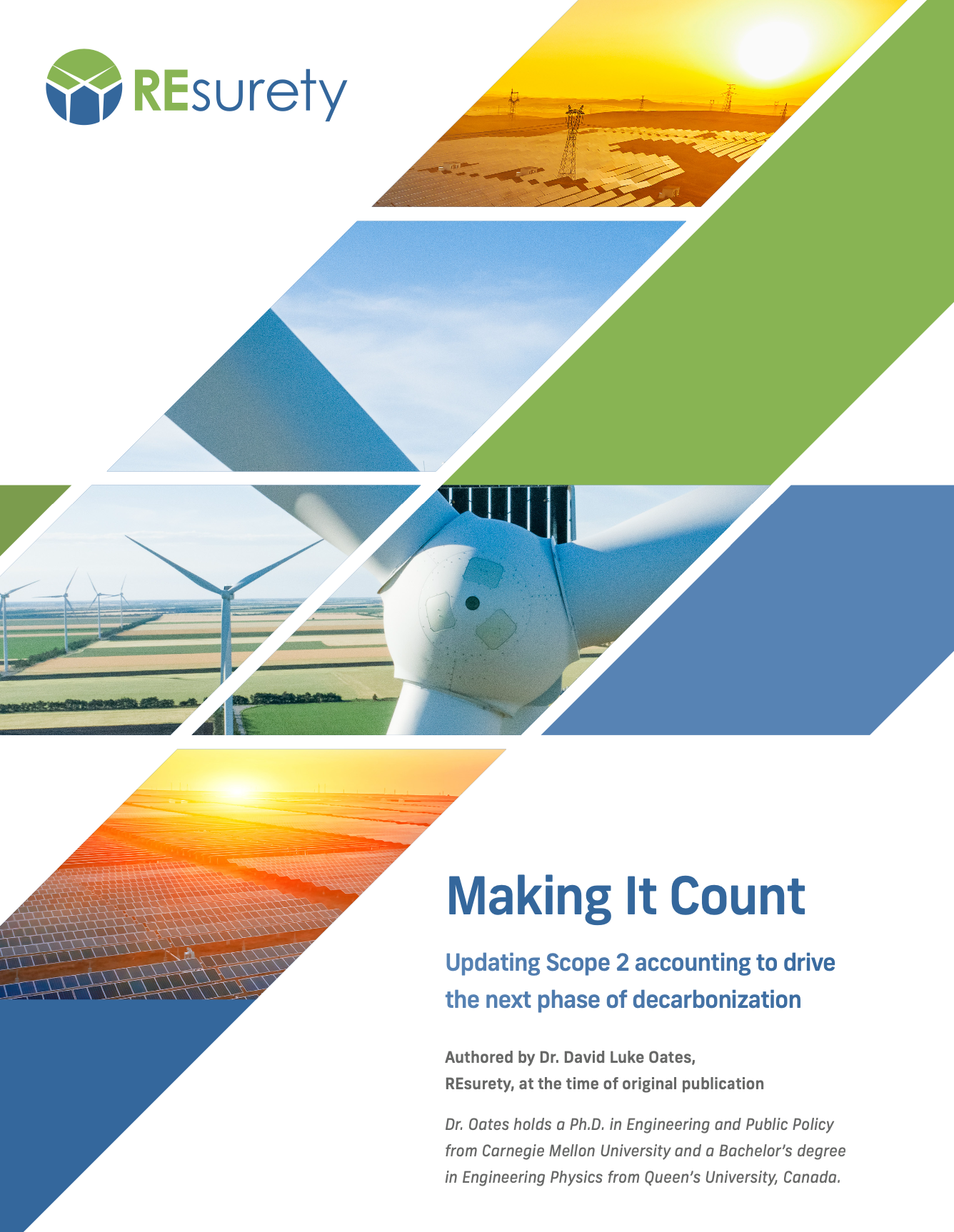
Updating Scope 2 accounting to drive the next phase of decarbonization

EXCERPT: Corporations are increasingly focused on reducing their carbon footprints by decarbonizing the electric grid. While solar and wind energy development have rightly been a mainstay of these efforts, there is growing consensus that producing more clean energy alone isn’t enough. To maximize grid decarbonization, clean generation needs to occur at times and locations where its output displaces the highest-emitting resources. Consumption timing and location should be adjusted to minimize its carbon emissions via siting decisions, demand flexibility measures, and energy efficiency. And energy storage is needed to manage grid congestion and mismatches between clean supply and demand.
Effective carbon accounting frameworks can help coordinate these complex mitigation strategies by allocating emissions among the entities responsible for producing them. These accounting frameworks attempt to ensure that activities with more impact on actual emissions have more impact on carbon accounts. Given the large and increasing interest of investors, customers, regulators, and governments in corporate decarbonization initiatives, effective carbon accounting frameworks can encourage corporations to maximize their actual carbon reductions.
Fill out the form to access the full white paper.
"*" indicates required fields
Return to the blog post main menu.

